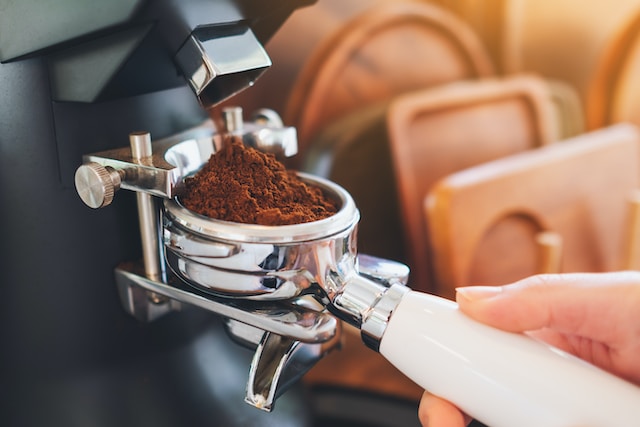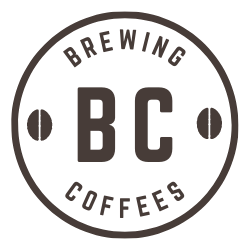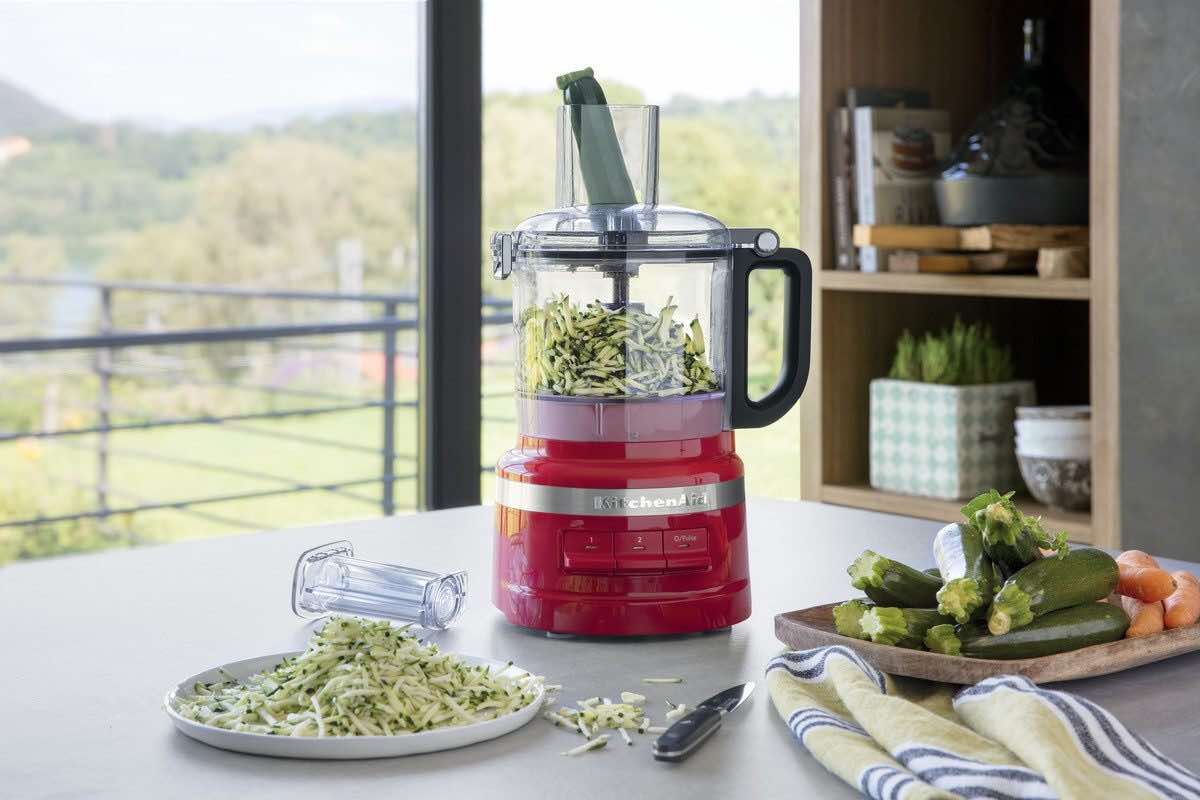We all know we should grind coffee beans before brewing to make the best coffee. However, not all of us have the proper tools for that. As a result, many result in using a food processor instead. But, Is it a good idea? Can you grind coffee beans in a food processor?
Grinding coffee beans in a food processor is not a good idea. This is because the food processor cannot produce a consistent grind. The blades may go hot, affecting the taste of the coffee. The blades may also go dull, and the flavor may be contaminated.
This article explores whether you can grind coffee beans in a food processor? We also look at if there are better alternatives to grind coffee.
Can You Grind Coffee Beans In A Food Processor?
On the surface, grinding coffee beans using a food processor sounds like a good idea. It breaks down the beans into grinds that look good enough for the coffee brewers to work.
However, that is where the upside ends. Using food processors to grind your coffee beans is usually a bad idea. These are some of the reasons why:
Boulders & Fines
The biggest issue with using a food processor is its mechanism of action. The blades first smash and then slice through the coffee beans. There is no mechanism of action to ensure the beans are ground down to a consistent size.
This means the coffee ground produced by a food processor will likely contain many ‘boulders’ and ‘fines.’ Boulders are grounds larger than the intended size, while fines are those smaller. Coffee particles are also fine.
This size inconsistency may result in an uneven brew as well. Hot water may under-extract the boulder and over-extract the fines. Your coffee will not taste good.
Lack Of Control
Aside from the inconsistent grind size, you may be unable to control how fine your grind will be. This is because you cannot set the grind size accurately with a food processor.
This means you must eyeball and guess your way during the grinding process. You stop once you feel that the grind is at your targeted level.
If you care about accuracy and achieving good grind size, you would know this is hardly the right way to make ground coffee.
Heat Generation
Food processors usually generate heat during their operation. This is because it uses high-speed motors. The friction from the spinning blades can also generate a lot of heat.
The blades’ heat may actually impact your coffee’s flavor and aroma. This is because the heat may affect some more sensitive oils and compounds inside the coffee bean, changing their characteristics.
As a result, your coffee may not achieve its true potential. It may even taste burnt and overly bitter.
Blade Dullness
Coffee beans are hard. They are harder than most common kitchen ingredients. If you grind them using a food processor, you are smashing your blades on the beans rather than slicing through them.
This means you may wear down your blades and dull them over time. As the blade dulls, they further exacerbate the problem of grind size inconsistency.
On top of that, since dull blades do not grind well, you need to run the food processor longer. This generates more heat, which may deteriorate the coffee beans further.
Flavor Contamination
Food processors are rarely used on a single ingredient. You may use it to grind down spices, onions, fruits, and more. You may clean it after each use, but over time, the container of your food processor will pick up flavors and aromas.
When you grind your coffee beans using the same food processor, you inevitably will introduce this aroma and flavor to your coffee beans. These flavors tend to bring a negative effect on how your coffee tastes.
What Is The Better Way To Grind Coffee Beans?
The best way to grind coffee beans is to use a coffee grinder. There are many upsides to using coffee grinders, which will help to make great coffee.

Burrs, Not Blades
Coffee grinders grind beans down using burrs instead of blades. Unlike blades, burrs crush the beans repeatedly until they achieve the targeted grind size. This means that burrs can control the grind sizes better.
There are two major types of burrs, conical and flat. If possible, go for coffee grinders with flat burrs, which produce finer and more consistent grounds.
Control Your Grind Size
With a coffee grinder, you can control your grind size. You can produce the perfect ground coffee to match your brewing method.
If you need to make espresso or Turkish coffee, ground your coffee to a fine size. You can grind to a coarser size if you plan to brew with a coffee machine or percolator. You no longer have to eyeball and guess if your grind is on the right size.
Wrapping Up
In conclusion, while the idea of using a food processor to grind coffee beans might seem practical, it proves to be sub-optimal upon closer investigation. The three key takeaways from this exploration are:
- Inconsistent Grind: Food processors lack the precise mechanism to ensure a consistent grind size, leading to uneven brews that affect the taste of your coffee.
- Heat and Dullness: High-speed operation can generate heat which alters the sensitive oils in coffee beans, while the hard coffee beans can dull the blades over time, further affecting the grind consistency.
- Flavor Contamination: Food processors, being multi-purpose kitchen tools, can introduce unwanted flavors into your coffee.
Ultimately, if you’re serious about the quality of your coffee, investing in a dedicated coffee grinder is well worth it.
With superior control over grind size, less heat generation, and no risk of flavor contamination, coffee grinders guarantee that every cup of coffee brewed will reach its true potential in aroma and taste.
Common Questions About Grinding Coffee Beans In A Food Processor
You can, but it is not advised. Your coffee may not be ground to the right size and consistency. Other flavors from the food processor can also contaminate your coffee.
Food processor blades can smash and slice through coffee beans, but they will go dull faster. This is because coffee beans are much harder compared to common kitchen ingredients.
Coffee grinders use burrs that crush the beans instead of slicing them. This means you get a finer, more consistent grind. Coffee grinders also allow you to control your grind size better.

Hi, I’m Megan! I love coffee – especially cappuccino – and spending time with my kids. When I’m not busy being a mom, I enjoy reading magazines (or just about anything that interests me) and swimming. In fact, I used to be a swimmer in college!


Leave a Reply